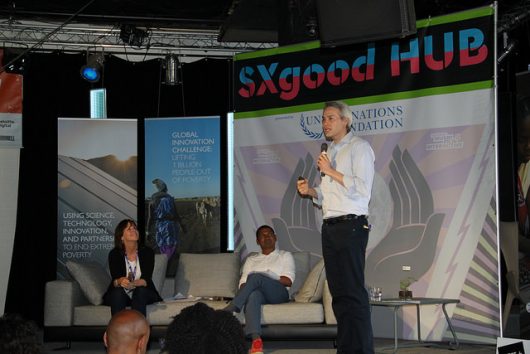UNICEF Innovation Fund: Frontier Technology for Education

UNICEF’s Innovation Fund is a newly established, non-thematic, pooled fund which has been specifically designed to finance early stage, open-source technology that benefits children. When companies are considered for funding, three core areas are the focus:
- Products for Youth
- Real-Time Information
- Infrastructure
UNICEF’s Innovation Fund
UNICEF started its Innovation Fund back in 2016, and raised millions of dollars in the hopes of expanding technology for education for children of poverty across the globe. The Fund offers innovators in developing countries a pooled funding mechanism to help them take their tested projects to the next stage.
The Innovation Fund allows UNICEF to quickly assess, fund and grow open-source solutions that can improve children’s lives. Financial and technological support is available for companies using technology for education in innovative ways to improve the world. The Fund has made 57 investments in 33 countries, totaling $3.9 million in investments. UNICEF has set a goal to invest in 30 more start-ups in 2018. To date, the Innovation Fund has already invested in twelve companies since the start of 2018, with six in April alone.
Pixframe
The first three newest companies under the Products for Youth are Pixframe, Teliportme and Suzhou Crenovator Lab Corp. The last three newest companies funded under Real-time Information are Datawheel Chile, Thinking Machines and Dymaxion Labs.
Pixframe is a Mexico-based company developing a software platform leveraging games-based learning technology for education called Towi. This software strengthens children’s cognitive skills across different areas including memory and attention. The system evaluates children’s skills through a series of activities, which are then analyzed to develop personalized training paths.
Children with disabilities in countries like Mexico face particular challenges as schools’ capacities to diagnose and treat learning disabilities are limited. Towi test can be applied to a group of students simultaneously, without specialized supervision and in just one session, paving the way for a greater scale of disability care.
Teliportme and Suzhou Crenovator Lab Corp
Teliportme, based in India, uses WebVR technology for education by creating immersive and enhanced experiences for children. Immersive education has proven to help children understand concepts faster, while learning about and experiencing things what would not have been otherwise achieved. VR experiences can provide a new way of learning topics and making them more exciting and immersive.
Suzhou Crenovator Lab Corp is a Chinese company that uses a mobile application, called VRMaker, for Android-based phones which enables children to think, design and create content for VR devices.
The visual programming technology for education is specifically designed with a variety of digital assets that can be used to create everything from stories to education content and games. Children can express themselves with pictures and sound in a virtual world, with links to creating virtual reality stories.
Datawheel Chile
Datawheel Chile is developing a country-wide fully integrated solutions and data visualization engine that merges, optimizes and integrates multiple data sets and streams from multiple official sources, to empower decision makers to make better informed decisions. This technology for educations expands past the classroom and into the community.
Traditional data distribution efforts fail to visualize and deliver data in an integrated manner. Datawheel provides useful insights for the design and evaluation of education, childhood and youth policies. It will also help local governments make informed decisions and monitor key indicators.
Thinking Machines and Dymaxion Labs
Thinking Machines is a Philippines-based company that encompasses a software framework that leverages Natural Language Processing techniques. The software accurately matches huge numbers of records across data silos. In 2016, Thinking Machines was able to link three different Philippine government databases and accurately match records in a fraction of the manual time.
Dymaxion Labs in Argentina addresses the growth of informal settlements in Latin America. These settlements often do not have critical public services such as sanitation and thus result in health and environmental hazards, especially for children.
Census data collection makes it difficult to monitor the growth of such settlements since it is conducted every 10 years (on average).Dymaxion Labs’ solution is also useful for rapid response when strong climate events and humanitarian crises occur in risky zones. It could also be used to monitor population spread and changes as a result.
Through its investments, the Innovation Fund generates value by strengthening communities of problem-solvers, increasing open source intellectual property and growing technology for education to bring results for children.
– Richard Zarrilli
Photo: Flickr
